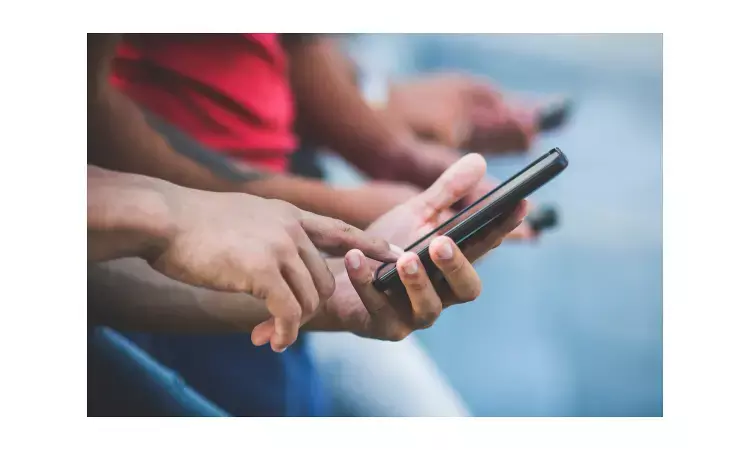- Home
- Medical news & Guidelines
- Anesthesiology
- Cardiology and CTVS
- Critical Care
- Dentistry
- Dermatology
- Diabetes and Endocrinology
- ENT
- Gastroenterology
- Medicine
- Nephrology
- Neurology
- Obstretics-Gynaecology
- Oncology
- Ophthalmology
- Orthopaedics
- Pediatrics-Neonatology
- Psychiatry
- Pulmonology
- Radiology
- Surgery
- Urology
- Laboratory Medicine
- Diet
- Nursing
- Paramedical
- Physiotherapy
- Health news
- Fact Check
- Bone Health Fact Check
- Brain Health Fact Check
- Cancer Related Fact Check
- Child Care Fact Check
- Dental and oral health fact check
- Diabetes and metabolic health fact check
- Diet and Nutrition Fact Check
- Eye and ENT Care Fact Check
- Fitness fact check
- Gut health fact check
- Heart health fact check
- Kidney health fact check
- Medical education fact check
- Men's health fact check
- Respiratory fact check
- Skin and hair care fact check
- Vaccine and Immunization fact check
- Women's health fact check
- AYUSH
- State News
- Andaman and Nicobar Islands
- Andhra Pradesh
- Arunachal Pradesh
- Assam
- Bihar
- Chandigarh
- Chattisgarh
- Dadra and Nagar Haveli
- Daman and Diu
- Delhi
- Goa
- Gujarat
- Haryana
- Himachal Pradesh
- Jammu & Kashmir
- Jharkhand
- Karnataka
- Kerala
- Ladakh
- Lakshadweep
- Madhya Pradesh
- Maharashtra
- Manipur
- Meghalaya
- Mizoram
- Nagaland
- Odisha
- Puducherry
- Punjab
- Rajasthan
- Sikkim
- Tamil Nadu
- Telangana
- Tripura
- Uttar Pradesh
- Uttrakhand
- West Bengal
- Medical Education
- Industry
Social media use may worsen depressive symptoms: JAMA

USA: A survey study published in JAMA Network Open revealed that certain social media use is associated with worsening depressive symptoms.
According to the study, social media use was associated with a greater likelihood of a subsequent increase in depressive symptoms among survey respondents who did not have depressive symptoms initially, after adjusting for sociodemographic features and news sources. The authors note that these data cannot explain the nature of this association, but suggests the need for further study to understand how social media use may factor into depression among adults.
Addiction to smartphones has become a worldwide problem among adults, which might negatively affect their wellbeing and mental health. New technology and widespread use of mobile phones, and their vast effect on communication and interactions, might possibly influence the negative health effects of mobile phone exposure.
Roy H. Perlis, Massachusetts General Hospital, Boston, and colleagues aimed to characterize the association between self-reported use of individual social media platforms and worsening of depressive symptoms among adults.
The study was a survey study that included data from 13 waves of a nonprobability internet survey conducted approximately monthly between May 2020 and May 2021 age 18 years and older in the US. D Logistic regression was applied without reweighting, with a 5 point or greater increase in 9-item Patient Health Questionnaire (PHQ-9) score as an outcome and participant sociodemographic features, baseline PHQ-9, and use of each social media platform as independent variables.
The results of the study were
• A total of 5395 of 8045 individuals with a PHQ-9 score below 5 on an initial survey completed a second PHQ-9.
• These respondents had a mean age of 55.8 years; 3546 respondents identified as female; 329 respondents were Asian, 570 Black, 256 Hispanic, 4118 White, and 122 American Indian or Alaska Native, Pacific Islander or Native Hawaiian, or other.
• Among eligible respondents, 482 (8.9%) reported 5 points or greater worsening of PHQ-9 score at the second survey.
• In fully adjusted models for increase in symptoms, the largest adjusted odds ratio (aOR) associated with social media use was observed for Snapchat (aOR, 1.53), Facebook (aOR, 1.42), and TikTok (aOR, 1.39).
Roy and team concluded that "Among survey respondents who did not report depressive symptoms initially, social media use was associated with a greater likelihood of a subsequent increase in depressive symptoms after adjustment for sociodemographic features and news sources. These data cannot elucidate the nature of this association, but suggest the need for further study to understand how social media use may factor into depression among adults."
Reference: Perlis RH, Green J, Simonson M, et al. Association Between Social Media Use and Self-reported Symptoms of Depression in US Adults. JAMA Netw Open. 2021;4(11):e2136113. doi:10.1001/jamanetworkopen.2021.36113
Medical Dialogues consists of a team of passionate medical/scientific writers, led by doctors and healthcare researchers. Our team efforts to bring you updated and timely news about the important happenings of the medical and healthcare sector. Our editorial team can be reached at editorial@medicaldialogues.in.
Dr Kamal Kant Kohli-MBBS, DTCD- a chest specialist with more than 30 years of practice and a flair for writing clinical articles, Dr Kamal Kant Kohli joined Medical Dialogues as a Chief Editor of Medical News. Besides writing articles, as an editor, he proofreads and verifies all the medical content published on Medical Dialogues including those coming from journals, studies,medical conferences,guidelines etc. Email: drkohli@medicaldialogues.in. Contact no. 011-43720751


